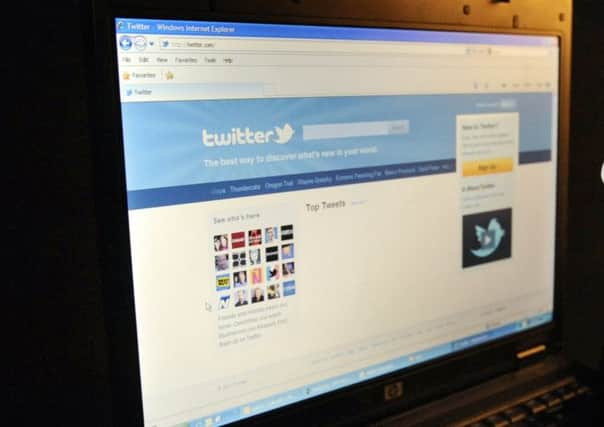Comment: Tweet while you work


During the quarter-century since its foundation on proposals from British computer scientist Tim Berners-Lee, the internet has brought with it a host of developments that far more seasoned technologies would proudly lay claim to: e-mail, the ubiquitous website, online shopping, mobile computing and the digital download, to name but a few.
The web and its spin-offs are now irrevocably intertwined throughout our personal and working lives. Nowhere is this more evident than in social media, which – depending on who you speak to – is either the bane or boon of business productivity.
Advertisement
Hide AdAdvertisement
Hide AdJust four years ago, surveys were regularly proclaiming billions of pounds of work time lost to the likes of Twitter and Facebook. It seemed employees were spurning any rules that might restrict their access to FarmVille, or the latest tweet from Britney Spears.
Surveys in this vein are still around today – one last month claimed that more than two-thirds of Scottish workers admitted being distracted from their core duties by e-mail, social media and browsing the web.
But these have become less the norm as more recent studies have increasingly focused on output, rather than totting up the total minutes spent in specific activities.
Research published last year by the Warwick Business School found that instead of diverting employees from their jobs, easy access to social media via smartphones actually makes staff more productive. Studies in the US have come to similar conclusions.
They argue that employees who use various types of social media and digital communication are more creative and collaborative at work, and are thus more productive. They are able to cut out many time-consuming processes by quickly and effectively interacting with other people.
This reasoning appears to be gaining some traction in the UK, where accountants – often regarded as lagging behind the technology curve – are now strongly embracing social media.
This pattern is being replicated at a somewhat slower pace north of the Border, where a recent survey for the Law Society of Scotland found 54 per cent of solicitors using LinkedIn at work. That was up from 42 per cent in 2013.
Of course, there will always be a small minority of staff who misuse the equipment at their disposal. Such has been the case with the telephone, e-mail and the internet, but no one would suggest banning them from the workplace.
Advertisement
Hide AdAdvertisement
Hide AdThe millennials who have grown up alongside the internet and are now entering the workforce are, above all else, a collaborative crowd. They expect to share ideas and innovate in virtual communities, and that will ultimately guarantee social media’s status as a bona fide business tool.